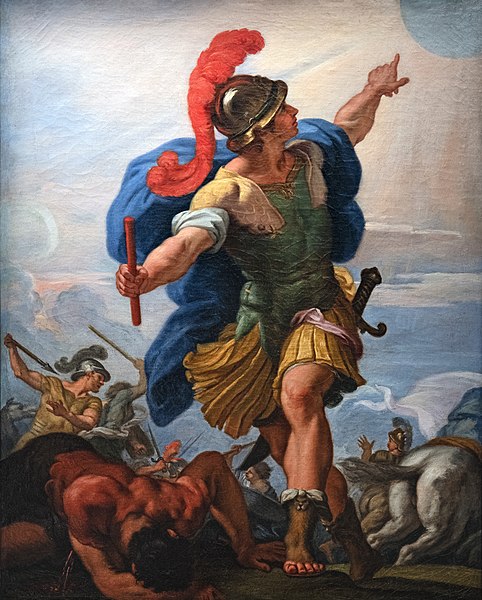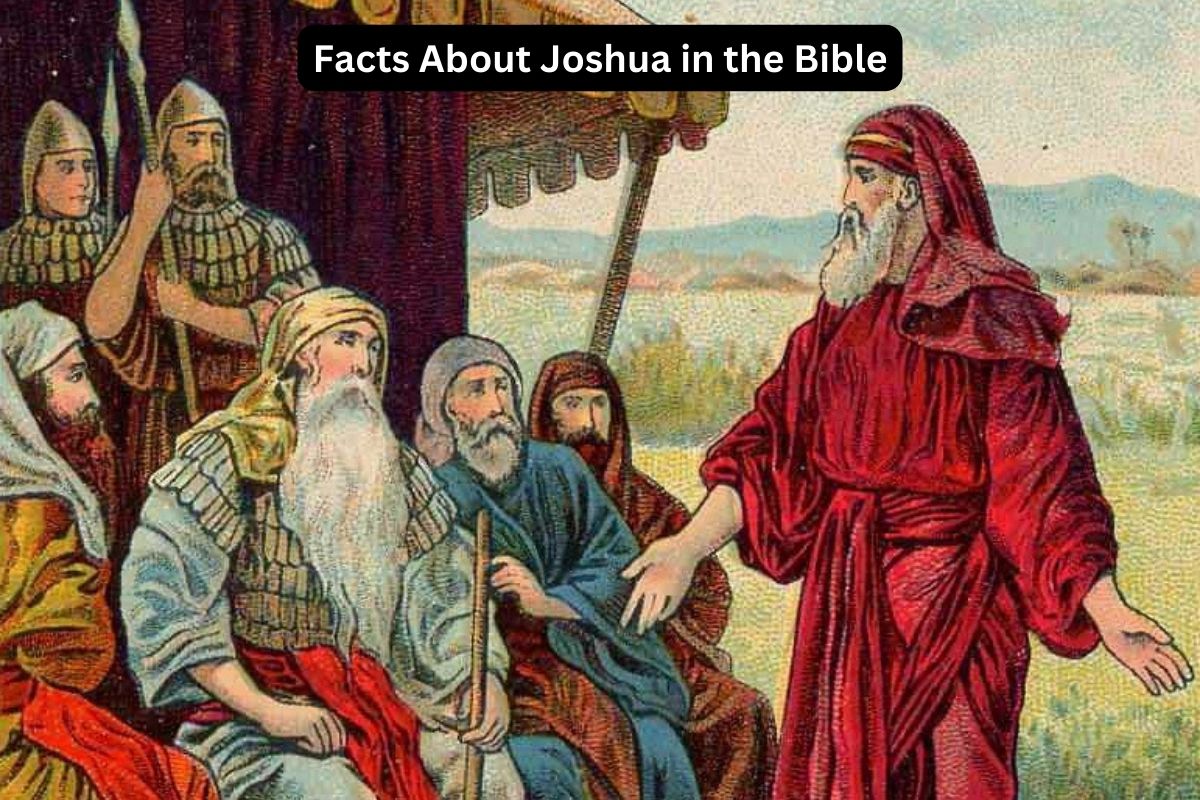Joshua is a prominent figure in the Bible, known for his leadership and pivotal role in the Israelites’ journey to the Promised Land. His name, meaning “Yahweh is salvation,” reflects his mission to guide the Israelites to their inheritance.
As the successor to Moses, Joshua led the Israelites across the Jordan River, orchestrated the conquest of Jericho, and oversaw the division of the Promised Land among the twelve tribes.
His leadership was marked by faith, obedience, and trust in divine intervention. In his farewell speech, he emphasized the importance of serving the Lord.
Joshua’s legacy endures as a symbol of unwavering commitment to God’s covenant and the fulfillment of His promises.
Joshua in the Bible Facts
1. Joshua’s name means “Yahweh is salvation”
The name “Joshua” is of Hebrew origin and is a combination of two elements: “Yahweh,” which is the personal name of the God of Israel, and “sha,” which means “salvation” or “to save.” Therefore, Joshua’s name signifies “Yahweh is salvation.”
Also Read: Scientific Facts in the Bible
This name is significant because it reflects his role as a leader chosen by God to guide and save the Israelites, leading them to the Promised Land.

2. He succeeded Moses as the leader of the Israelites
After the death of Moses, God chose Joshua to be his successor as the leader of the Israelites. This was a momentous responsibility, as Moses had been the central figure in the Israelites’ journey from Egypt to the edge of the Promised Land.
Joshua was handpicked by God to continue the mission of leading the Israelites into Canaan and securing their inheritance.
3. Joshua sent spies to scout Jericho
Before launching an assault on the city of Jericho, Joshua sent two spies, Caleb and Phinehas, into the city to gather intelligence. These spies played a crucial role in the Israelite conquest of Jericho.
Also Read: Peter in the Bible Facts
They were hidden and protected by Rahab, a woman living in Jericho, who came to trust in the power of the Israelite God. Rahab’s assistance to the spies and her faith in Yahweh ultimately led to her and her family being spared when the city of Jericho fell.
This episode showcases both Joshua’s strategic acumen in sending spies and the providential hand of God in preparing the way for the Israelite conquest of Canaan.
4. He led the Israelites across the Jordan River on dry ground
One of the most iconic events in Joshua’s leadership was the miraculous crossing of the Jordan River. As the Israelites approached the river, it was in flood stage, presenting a significant obstacle to their entry into the Promised Land.
However, in a powerful display of divine intervention, when the priests carrying the Ark of the Covenant stepped into the river, the waters miraculously stopped flowing, allowing the Israelites to cross on dry ground.
This event paralleled the parting of the Red Sea during the time of Moses and symbolized God’s presence and guidance in Joshua’s leadership.

5. Joshua ordered the circumcision of Israelite males at Gilgal
After crossing the Jordan River, Joshua ordered the circumcision of all Israelite males who had not been circumcised during their time in the wilderness. This circumcision took place at a location called Gilgal, and it was a recommitment to the covenant with God.
It’s worth noting that this act of obedience happened just before the Israelites celebrated the Passover in the Promised Land, signifying a renewal of their commitment to God as they entered the land of promise
6. He led the Israelites in the famous Battle of Jericho
Perhaps the most famous military campaign under Joshua’s leadership was the Battle of Jericho. This fortified city was the first major obstacle in the conquest of Canaan.
Following God’s instructions, Joshua led the Israelites in a unique and strategic plan. They marched around the city walls once a day for six days, carrying the Ark of the Covenant and blowing trumpets.
On the seventh day, they circled the city seven times, and as they shouted, the walls of Jericho miraculously collapsed, allowing the Israelites to enter and conquer the city.
The Battle of Jericho is a testament to Joshua’s faith in God’s guidance and the power of divine intervention in their conquest of the Promised Land.
7. The sun and moon stood still during a battle under Joshua’s leadership
During the conquest of Canaan, Joshua and the Israelites faced a critical battle against the Amorite coalition. In a moment of divine intervention, Joshua prayed to God for the sun and moon to stand still in the sky, extending the daylight hours.
God answered his prayer, and a prolonged day allowed the Israelites to secure victory in that battle. This event is recorded in the Book of Joshua (Joshua 10:12-14) and demonstrates the extraordinary nature of God’s support for Joshua’s leadership.
8. Joshua divided the Promised Land among the twelve tribes
After the conquest of Canaan, Joshua played a crucial role in the allocation of the Promised Land to the twelve tribes of Israel. He divided the land according to God’s instructions, ensuring that each tribe received its allotted territory.
This division marked the fulfillment of God’s promise to Abraham and was a significant administrative task that showcased Joshua’s leadership and commitment to following God’s guidance.
9. He delivered a farewell speech to the Israelites before his death
Before his death, Joshua delivered a powerful farewell address to the Israelites, as recorded in the Book of Joshua, chapter 24. In this speech, he recounted God’s faithfulness throughout their history, from the time of Abraham to their conquest of Canaan.
Joshua urged the people to choose to serve the Lord and put away the gods their ancestors had served in Egypt and beyond. His words emphasized the importance of faithfulness to God and served as a call to covenant renewal.
10. Joshua died at the age of 110, leaving a legacy of faithfulness to God
Joshua lived to the age of 110 and died in the land he had helped conquer. He was buried in the territory of his own inheritance, Timnath-serah, which was located in the hill country of Ephraim. Joshua’s death marked the end of an era, but his legacy endured.
He is remembered as a faithful leader who followed God’s commands and led the Israelites into the Promised Land, securing their inheritance. His commitment to God’s covenant and his leadership in the conquest of Canaan left an indelible mark on the history of Israel.
